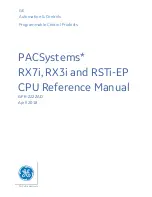
110
MBOX
®
DIRECTOR USER MANUAL
It is possible for interfaces to send packets to or receive packets sent to a multicast address without joining the
corresponding multicast group. But unless the interfaces join the multicast group, switches between the devices may
not forward the multicast packets correctly.
Most of the time you can use a /8 subnet mask (255.0.0.0) with Mbox. When you use multiple interfaces on the same
computer, with each having a /8 subnet mask, a general rule is to make sure that each interface has a different first
octet. Otherwise there may be ambiguity when trying to determine which interface to use for various communications.
While all interfaces on a computer may receive packets from any source, packets sent by the computer almost always
should leave through only one interface. If that interface is not on the correct subnet (or indeed the correct physical
network) then the packets will never get to the intended destination.
For example, you can have two interfaces set up with IP addresses of 2.0.0.1 and 2.1.0.1 where both have a subnet
mask of 255.0.0.0. -> Both interfaces are on the same sub-network (i.e. 2.x.x.x), but have unique IDs on that network.
Because this is a valid IP scheme, the computer will allow this; but using this setup will cause issues with Mbox
software. One or both of these interfaces should use a /16 subnet mask instead of the /8 subnet mask, thereby
placing the two ports onto different subnets. -> 2.1.x.x and 2.0.x.x
With all protocols, especially those detailed below, it’s best that one and only one port on the computer be on the
same subnet as the destination devices. When the computer is told to output data to a specific destination device it
avoids confusion if only one port can "talk" to that device.
Standard Control Protocols
Art-Net
Art-Net packets can be fully broadcast (i.e., not restricted to a particular subnet) which makes a device's subnet
inconsequential. Some Art-Net devices use full-broadcast to transmit their data, potentially flooding the network with
data.
To reduce overhead, most Art-Net devices use a subnet mask of 255.0.0.0 and generally use either 2 or 10 as the first
octet in their IP address. This places these devices into a specific subnet and they only talk to other Art-Net devices
on the same subnet. Art-Net data would be sent to the subnet broadcast IP address - either 2.255.255.255 or
10.255.255.255. While this cuts down on some bandwidth usage vs. a full broadcast, it should be noted that subnet
broadcasts still aren't the most efficient use of bandwidth.
For the best efficiency possible, Art-Net can be unicast from device to device. This cuts down on overhead, but
means that the IP address for each device must be known in advance and the precise destination for every piece of
data must be specified. This can make the hardware configuration and software setup more complex. Additionally, the
device to be unicast to must still be on the same subnet as a port on the Mbox computer, otherwise the packets won't
be received at all.
sACN
sACN packets are typically multicast, which sidesteps the restrictions of subnets and subnet masks meaning that any
interface can send or receive data for any multicast group it joins. Of course, the interface must still be on the correct
physical network for the multicast group. Joining a multicast group is most important when receiving data. Switches
can monitor multicast data on the network, and then filter out data that a connected interface has not elected to
receive (i.e., for a multicast group it has not joined).
Any interface on the computer can be used for multicast, but as noted earlier, the interface has to be specifically
identified and registered as a member of the appropriate multicast group. sACN uses predetermined multicast groups
and therefore the address for each group is preset as well. With its registering as a member of all of the necessary
groups (for transmitting or receiving), Mbox will not be able to send or receive sACN packets. For the purposes of
receiving multicast data, it is possible to have all the interfaces on a computer join a multicast group. But for the
purposes of outputting multicast data, only one interface should join the group.
sACN does allow for broadcast or unicast but this functionality is not widely used.





































